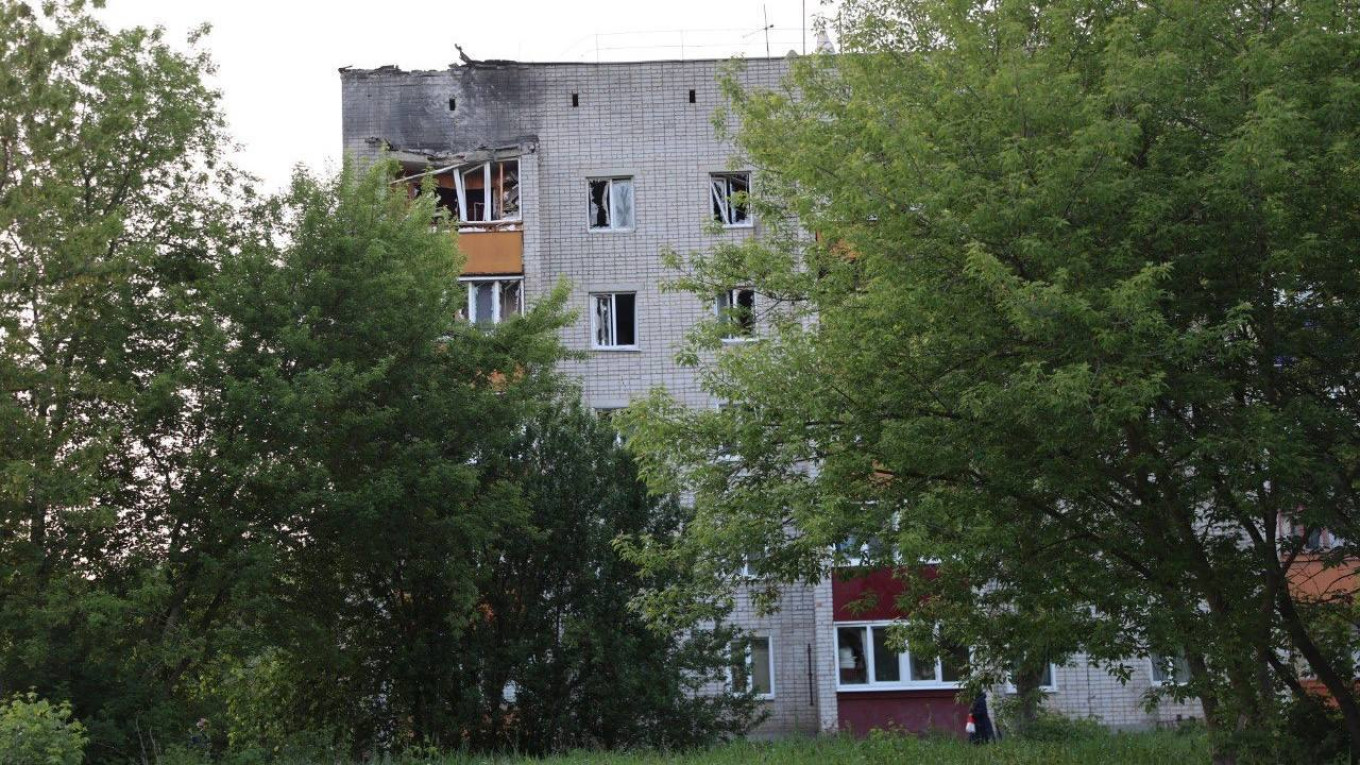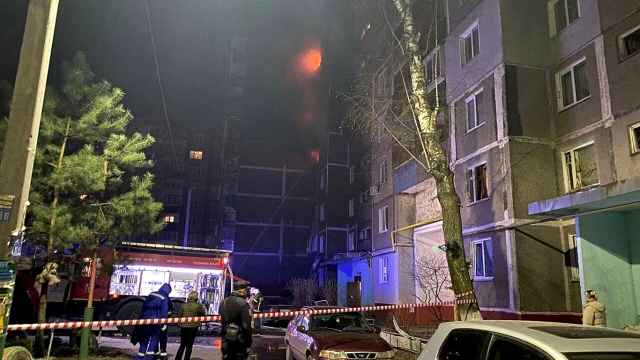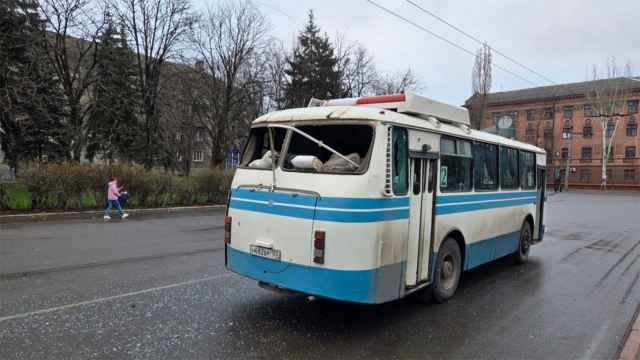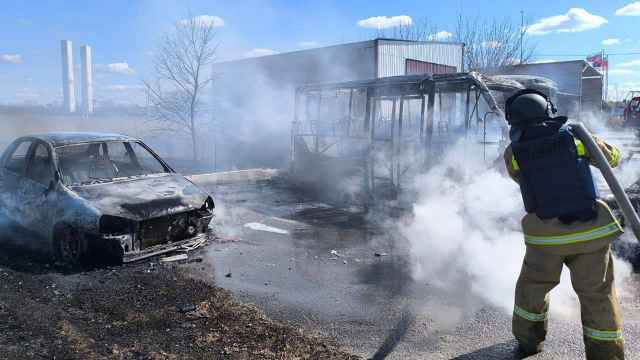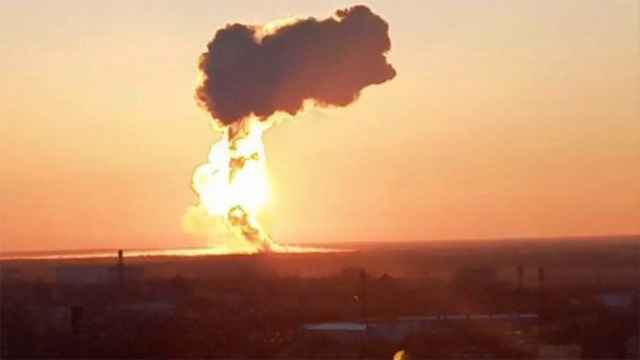Russia’s Defense Ministry said early Friday that it had downed more than 100 Ukrainian drones in a third consecutive night of air attacks across the country and annexed Crimea, as regional officials reported several injuries in the strikes.
Two dozen drones were destroyed over the Moscow region, the most of any region, according to the military. Crimea, which Russia seized from Ukraine in 2014, saw the second-highest number, with 22 drones reportedly shot down.
Drones were also intercepted over the regions of Kursk, Oryol, Tula, Bryansk, Ryazan, Belgorod, Ivanovo, Vladimir, Voronezh and Lipetsk, the ministry said.
In the Lipetsk region south of Moscow, eight people were injured by falling debris after drones were downed over an industrial zone, regional Governor Igor Artamonov said. He urged residents to stay indoors and keep away from windows.
Unconfirmed reports from Telegram news channels claimed a battery manufacturing facility in Lipetsk was targeted. The facility allegedly produces batteries for the Russian military, including for drones.
Ukraine has launched major drone barrages against Russia for three straight nights, damaging infrastructure and prompting flight delays as airports near Moscow restrict operations during the attacks.
A Ukrainian military spokesperson told The Kyiv Independent this week that the drone strikes are meant to destabilize Russia internally and lower public morale. “Sleeping in tents at the airport is not the highest price, but it does affect morale,” the spokesperson said.
Meanwhile, authorities in the Kursk region said 16 people were injured in a Ukrainian rocket strike late Thursday on the town of Lgov, near where President Vladimir Putin made a surprise visit to the border region earlier this week.
A Message from The Moscow Times:
Dear readers,
We are facing unprecedented challenges. Russia's Prosecutor General's Office has designated The Moscow Times as an "undesirable" organization, criminalizing our work and putting our staff at risk of prosecution. This follows our earlier unjust labeling as a "foreign agent."
These actions are direct attempts to silence independent journalism in Russia. The authorities claim our work "discredits the decisions of the Russian leadership." We see things differently: we strive to provide accurate, unbiased reporting on Russia.
We, the journalists of The Moscow Times, refuse to be silenced. But to continue our work, we need your help.
Your support, no matter how small, makes a world of difference. If you can, please support us monthly starting from just $2. It's quick to set up, and every contribution makes a significant impact.
By supporting The Moscow Times, you're defending open, independent journalism in the face of repression. Thank you for standing with us.
Remind me later.


